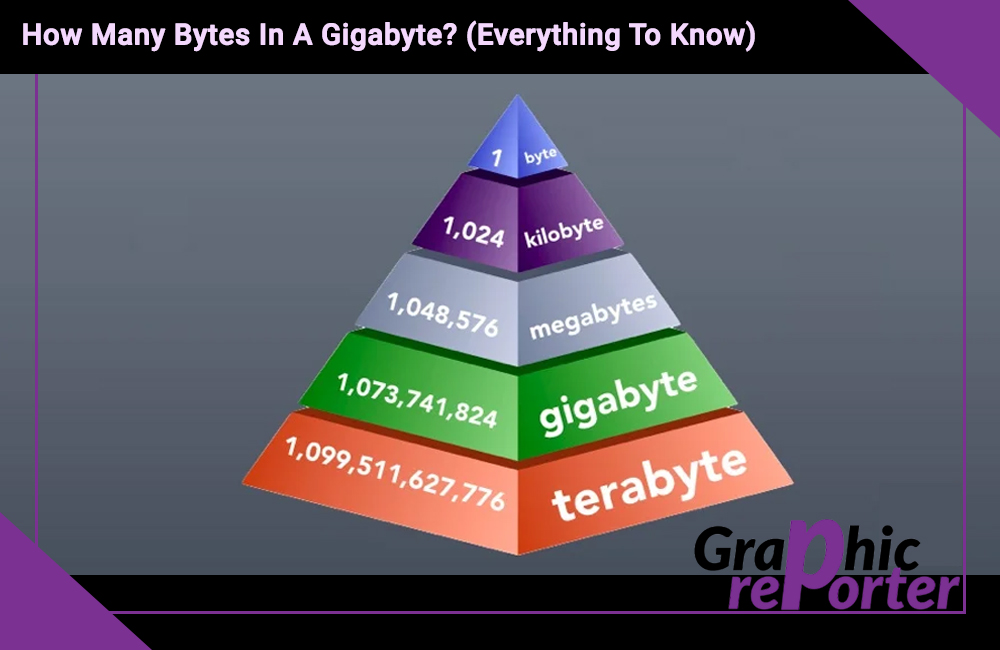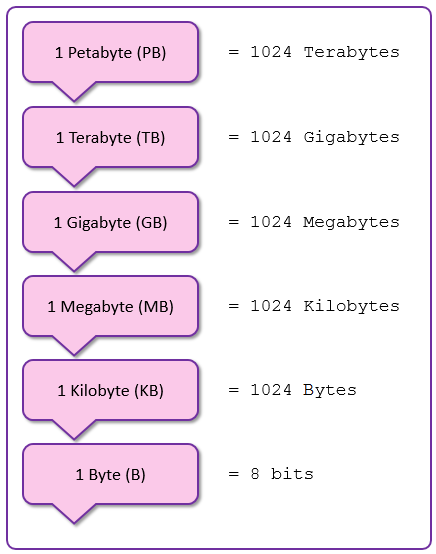How Many Bytes In A Gigabyte? (Everything To Know)

Gigabyte is the most common term used in the tech world. Gigabyte is a unit of storage in digital devices like your phone, tablets, PC, and various others. Gigabyte is constituted of Megabyte, which is constituted of Kilobyte. Byte constitutes Kilobyte, and that’s how the storage is represented in our digital world.
Gigabyte is not the largest unit; there are others like Terabyte, Petabyte, Exabyte, Zettabyte, and Yottabyte. However, Gigabyte is most commonly used in today’s world. So now the question is, how many bytes make up one Gigabyte? You may think that the simple answer to this would be 1GB or Gigabyte is equal to 1 Billion Byte, but it is not. This article will tell you why; read ahead to know more.
Table Of Contents
How Many Bytes Are There In A Gigabyte?
We often read that 1GB is equal to 1000MB or Megabyte. Similarly, 1MB is equal to 1000 Kilobyte, and 1 Kilobyte is equal to 1000 Byte. If calculated, 1GB would be 1 Billion Byte. However, that’s not what it looks like. We follow our number system as a Decimal number system (base 10), but the computer follows the binary system (base 2).
As per humans, 1KB equals 10^3 Bytes which is 1000 Bytes, and the same goes for all the other storage units. But in the digital world, 1 Kilobyte is 2^10, which means 1024 bytes. If calculated, 1MB is 1024KB, and 1GB is 1024MB. So 1GB or 1 Gigabyte will be equal to 1,073,741,824 bytes.
Binary System In Digital World
Every digital device uses the binary system that has base two. It means that your computer will only understand 1 and 0 and nothing apart from that. Here, 1 stands for true and 0 for false, and the arrangement of these numbers constitutes up our phones, PCs, and other digital devices. These 1 and 0 individually are called the bit, the smallest unit of storage in the computer system.
Bits are too small to transfer data; we consider using Byte, which is formed from 8 bits. 1 Byte can hold one letter, so if your text has 20 letters, they will make 20 bytes. After Byte comes Kilobyte, which is 1024 byte. Similarly, 1024 kilobyte equals 1MB, and 1024MB makes up 1 Gigabyte.
There’s another thing to consider: we use not only GB but also Gb for data storage. So what’s the difference between them, just a difference in capitalization in the last letter? No, there’s a huge difference between GB and Gb. GB stands for Gigabyte, and Gb stands for Gigabits. Gigabits are one-eighth of the Gigabytes, meaning they are eight times smaller. Similarly, there are MB and Mb, where Mb is eight times smaller than MB.
So, where do we see this difference? The storage devices we have come in GB or MB, while the internet speed is measured in Gb or Mb. Our network providers tell us the speed in Gigabits or Megabits, not in Gigabyte or Megabyte.
How Does The Gigabytes Estimation Affect Us?
As we discussed, 1 Gigabyte is not 1 Billion bytes bit 1,073,741,824 bytes. The difference between 1000 bytes (power of ten) and 1024 bytes (power of two) maybe not be too much, but the round-off can be problematic when considering large numbers.
You might have seen that when you buy a USB thumb drive of 8GB, you get around 7.2GB or storage and not a complete 8GB. Similarly, a 500GB hard disk does not have 500GB exact storage capacity but around 466GB storage. This difference between 1000 and 1024 can be seen when talking about large numbers; you will get less data than you are paying for.
Moreover, this can cause confusion between OS developers, manufacturers of storage devices, and programmers. This conversion between 1000 ad 1024 can be confusing and time-consuming.
Final Words
We hope this article cleared your doubt about total bytes in 1 Gigabyte. To make it understandable, a 1GB can hold approximately 4000 books of 200 pages each, 500 photos clicked in 6MP resolution, 250 audio files, a half hour of Netflix content, etc. Remember when talking about 1GB, it’s not 1000MB but 1024MB.
FAQ
Given below are some FAQs related to data storage units in the digital world.
Why Is 1 GB Equal To 1024MB?
It is because digital systems are based on the binary number system, which follows the order of power of two. Because of this reason, 1GB is equal to 1024MB or 2^10 MB.
What Is The Difference Between Byte And Bit?
The bit is the smallest unit of storage in digital systems, whereas 1 byte forms from 8 bit.
What Is Binary System?
Binary System understands only two digits, 1 and 0. 1 is for true while 0 for false. Apart from these two units, there are no other numbers. They follow the order of base-2, and that’s what our digital world is formed of.
What Are Most Commonly Used Storage Units?
The most commonly used storage units are Kilobyte, Megabyte, and Gigabyte.








